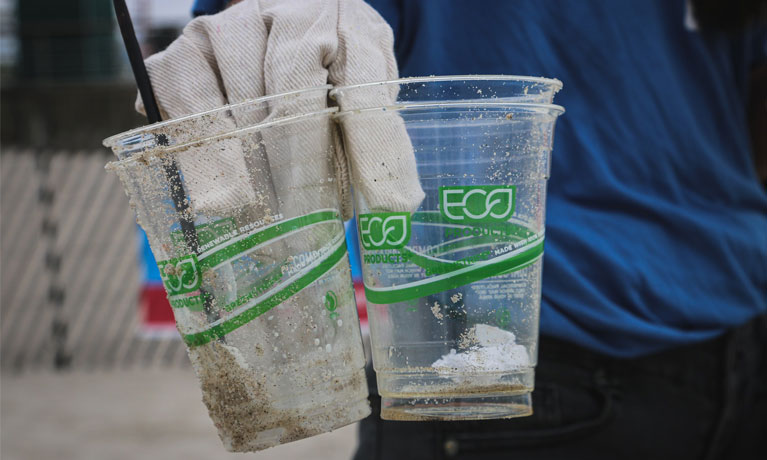By Professor Benny Tjahjono
As part of the ESRC-funded SIMBIO project, the first of three Social Innovation labs was held on 4th March 2021, involving 40 participants representing a wide range of stakeholders in the bioplastics packaging supply chain. In the spirit of the times, the event used online technologies including Zoom and the interactive collaboration tool Miro to engage participants from Brazil, Canada, Poland, Indonesia, and the UK.
Technological innovations in the form of biobased biodegradable plastics offer hope for the future. Still, many challenges across the supply chain need to be tackled before they can successfully be rolled out.
SIMBIO (Social Innovation Management for BIOplastics) project is an ESRC-funded research project (grant no. ES/T015195/1) aiming to develop social interventions which can identify and address the economic, social and political challenges of implementing packaging solutions based on biobased biodegradable plastics.
The social Innovation lab is a method commonly used for solving complex social problems. The lab provides an avenue for multi-stakeholder groups to address a complex problem through sharing of participant’s differing perspectives. It takes a whole systems approach and uses data-oriented evidence base for testing hypotheses, rigorous tracking and analysis.
The event also featured a presentation from David Newman, Director of Bio-based and Biodegradable Industries Association (BBIA). In his talk, David highlighted that – “understanding the role of innovative materials and how society reacts to the transition into more sustainable practices is a crucial question. As we move towards net zero emissions, we have to think across systems and how material applications can help achieve those ambitious goals. The SIMBIO project is an aid to that process”.
SIMBIO will ensure a constructive dialogue between different stakeholders within bioplastic packaging supply chains; involving production, consumption and waste management. This process will facilitate the development of a pathway towards greater uptake of biobased and biodegradable options, and at the same time, the achievement of sustainability goals.

Emily Nichols, technical manager for the Association for Renewable Energy and Clean Technology (REA), whose work is on organics and natural capital topics, said: “In the right applications, compostable bioplastic packaging has a niche but important role to play in the more efficient collection and organic recycling of food wastes into digestates, biogas and composts. I welcome their consideration as part of the social interventions in this SIMBIO project will develop to support appropriate production, consumption and end-of-life management of the producible range of bioplastics.”
Through the Social Innovation Labs, we are able to gain participant’s perspectives as to the realities of the current bioplastics packaging supply chain. We are also able to identify the structure of the bioplastic supply chain and the governance system that drives it. We want to collectively identify barriers, opportunities and develop a pathway towards greater uptake of biobased biodegradable materials in the future.
The output from this event will feed into the other two Social Innovation Labs scheduled for May and July, to design the action plans before looking in more detail at the subsequent event as to how the solutions can be materialised.
The SIMBIO research team consists of Prof Benny Tjahjono, Dr Macarena Beltran, Dr Jordon Lazell and Dr David Bek from the Centre for Business in Society, and Dr Anna Bogush from the Centre for Agroecology, Water and Resilience. The event was assisted by PGRs: Liliani, Danu, Niken and Tanja.




Comments are disabled